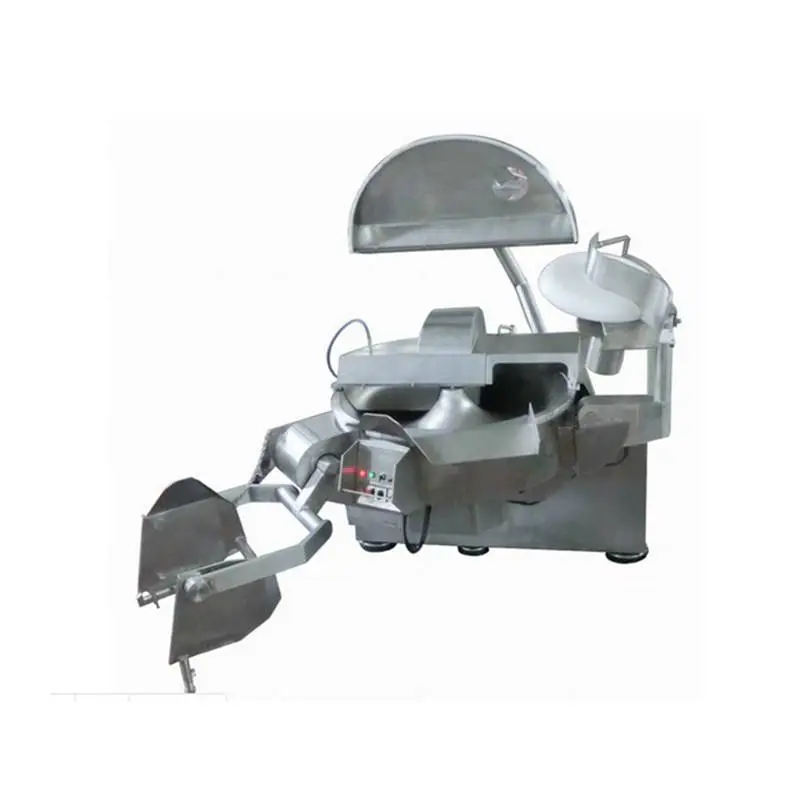
Jul . 27, 2024 19:43 Back to list
Efficient Solutions for Meat Product Processing Equipment and Machinery for High-Quality Production
The Evolution of Meat Products Processing Machines Enhancing Efficiency and Quality
The meat processing industry has undergone significant evolution over the past few decades, with technological advancements playing a crucial role in boosting efficiency, safety, and product quality. At the core of this transformation are meat products processing machines, which serve as indispensable tools in modern meat production facilities. These machines not only streamline the processing workflow but also contribute to meeting consumer demands for high-quality meat products.
The Importance of Processing Machines
Meat products processing machines are designed to handle various stages of meat processing, including cutting, grinding, mixing, and packaging. Their importance cannot be overstated; they ensure that meat is processed quickly and hygienically, minimizing the risk of contamination. In a world where food safety regulations are stringent, these machines help producers adhere to rigorous standards, thereby protecting consumers and enhancing brand reputation.
Types of Meat Processing Machines
Several types of machines are utilized in meat processing, each tailored for specific tasks.
1. Meat Slicers These machines are essential for slicing meat into uniform pieces. They are widely used in delis and butcher shops and provide speed and precision, which hand slicing cannot match.
2. Meat Grinders These devices grind meat to create products like sausages and ground beef. Modern grinders are equipped with advanced technology that allows for consistent texture and size, which is crucial for product integrity.
3. Mixers In sausage production, mixers blend meat with spices and additives evenly. High-capacity mixers ensure thorough mixing, which is vital for flavor and consistency.
meat products processing machine

4. Stuffers Sausage stuffers fill casings with meat mixtures. Automated stuffers can significantly increase production rates while maintaining quality and reducing labor costs.
5. Vacuum Packers These machines are essential for extending the shelf life of meat products. By removing air from the packaging, vacuum packers reduce oxidation and spoilage, preserving the freshness of meat.
Technological Innovations
The integration of technology into meat processing machinery has brought about significant improvements. Automation is one of the most notable advancements. Automated systems can process large volumes of meat with minimal human intervention, reducing labor costs and enhancing productivity. Additionally, these machines often include features that allow for real-time monitoring of temperature, humidity, and other conditions critical to quality control.
Moreover, the implementation of smart technology is on the rise. Machines equipped with IoT (Internet of Things) capabilities can communicate with operators to provide insights into machine performance and maintenance needs. This proactive approach helps prevent downtime and ensures that processing schedules remain uninterrupted.
Sustainability in Meat Processing
As the meat processing industry faces growing scrutiny over its environmental impact, machines that support sustainable practices have gained prominence. For instance, energy-efficient equipment reduces power consumption, while advancements in waste management systems minimize byproduct waste. These innovations align with a broader industry move towards sustainable production methods, ensuring that processors can meet regulatory requirements and consumer expectations for eco-friendly practices.
Conclusion
In summary, meat products processing machines have revolutionized the meat processing industry by enhancing efficiency, improving food safety, and promoting sustainability. As technology continues to advance, we can expect these machines to evolve further, incorporating smarter features and capabilities that will shape the future of meat production. The ongoing commitment to quality, efficiency, and sustainability will ensure that the meat industry remains resilient and responsive to the dynamics of consumer demand. The journey of meat processing machines is a testament to human ingenuity and the relentless pursuit of improvement in food production.